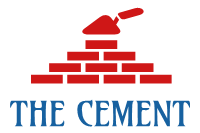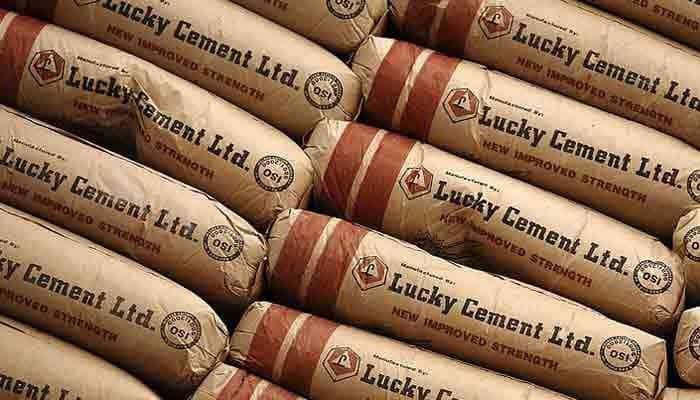KARACHI: Lucky Cement profit jumped 135 percent to Rs4.541 billion in the first half of fiscal year 2020/21, translating into earnings per share (EPS) of Rs14.04, a bourse filing said on Friday.
The company posted Rs1.936 billion with EPS of Rs5.99 in the same period ended December 31, 2019. Dividend payments were nil as per the notice submitted to the Pakistan Stock Exchange.
Sales showed improvement, as net sales went up 42 percent to Rs30.075 billion from Rs21.211 billion in the first half of 2019.
Brokerage Arif Habib Limited in a report said, “Company’s top-line witnessed an uptick of 36 percent YoY to Rs15.7 billion in
Q2FY21 amid 26 percent growth in total dispatches (2,567 thousand tons versus 2,042 thousand tons) as well as higher retention prices.”
Similarly, during 1HFY21 revenue depicted a surge of 42 percent YoY due to aforementioned reasons (off-take rose by 36 percent YoY to 4,997 thousand tons tagged with improved retention).
Analyst Shankar Talreja of Topline Securities said, “Led by robust performance of Lucky Motors Corporation (formerly KIA Lucky Motors), Lucky Cement posted above industry consensus consolidated earnings of Rs18.6/share, up 210 percent YoY compared to industry average of Rs16.5/share.”
Lucky Motors Corporation posted gross margins of 15.6 percent (estimated) during Q2FY21, up 350bps QoQ with expected profitability of Rs2.3-2.4 billion (almost 2x than that of last quarter). “Our expectations for the auto operations were Rs1.5 billion for Q2FY21,” his note added.
Brokerage Taurus Research in its note said, “Earnings growth is attributable to strong demand from the construction sector post-lockdown, attractive interest rates and government incentives to boost the economy.”
Consolidated finance cost declined by 40 percent YoY and 21 percent QoQ to Rs336 million as improvement was seen in both ICI and Lucky Motors.
International Steels profit spikes 497pc
International Steels Limited (ISL) net profit spiked drastically by 497 percent to Rs2.774 billion in the first half of the current fiscal year 2020/21, translating into EPS of Rs6.38, a bourse filing said.
The company earned Rs0.465 with EPS of Rs1.07 in the first half of FY2019/20. An interim cash dividend for half-year ended December 31, 2020 was announced at Rs3/share, which was 30 percent, the PSX notice said.
Net sales went up 32 percent to Rs33.515 billion in the period under review, compared to Rs25.364 billion in the same half of FY20.
Talreja said ISL earnings announcement beat industry consensus by a wide margin, clocking in record earnings of Rs5.09/share for Q2FY21 (up 19x YoY). “The average industry expectations were Rs2.6/share.”
The sharp increase in earnings was on the back of abnormal inventory gains, which propelled gross margins to 20 percent, “versus our estimate of 12 percent during Q2FY21,” he added.
Revenue of the company increased by 29 percent YoY to Rs17.8 billion due to increase in both price and quantity sold during the quarter.
Finance cost fell by 74 percent YoY due to decline in both borrowing rate and borrowings of the company.
Aisha Steel Mills posts Rs2.52bln profit
Aisha Steel Mills profit clocked in at Rs2.520 billion in the half-year ended December 31, 2020 with EPS of Rs3.21, a PSX notice said.
The company had posted loss of Rs0.285 million with loss per share of Re0.45 in the same half during fiscal year 2019/20. It informed that the board of directors did not announce any dividends.
Gross profit of the company was Rs4.577 billion in 1H ended December 31, 2020, compared with Rs1.259 billion in the corresponding period ended December 31, 2019.
Brokerage Taurus Research report attributed the earnings growth to a few factors. The first was strong demand from the automobile sector post lock-down and 16 percent uptick in 2/3 wheeler sales during the Q2. The other factor was identified as the surge in international cold-rolled coil prices and wider HRC-CRC spreads.
The company passed on the full impact on to consumers amidst rising raw material prices, the report added. Finance cost of the company declined 72 percent YoY.
Source THE NEWS

